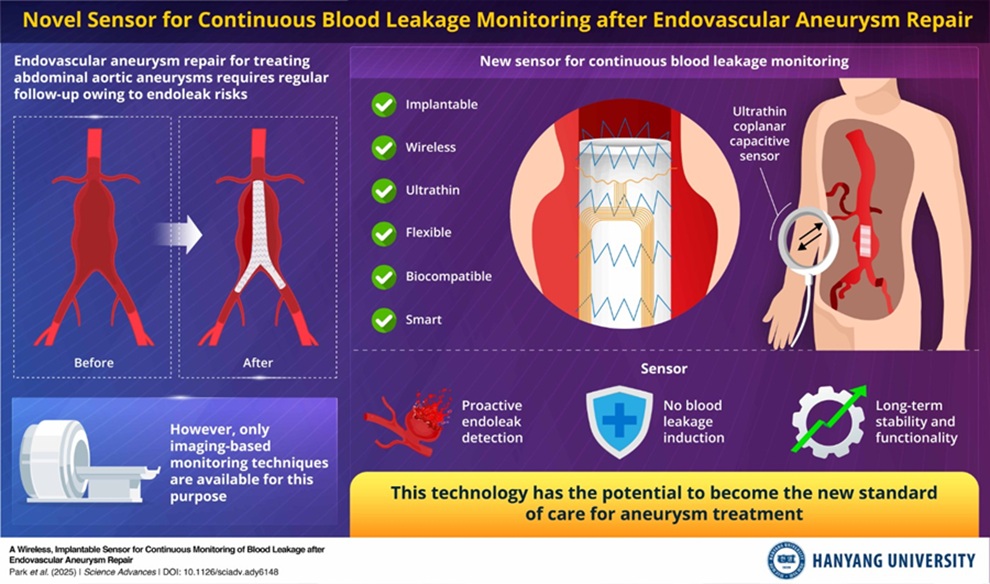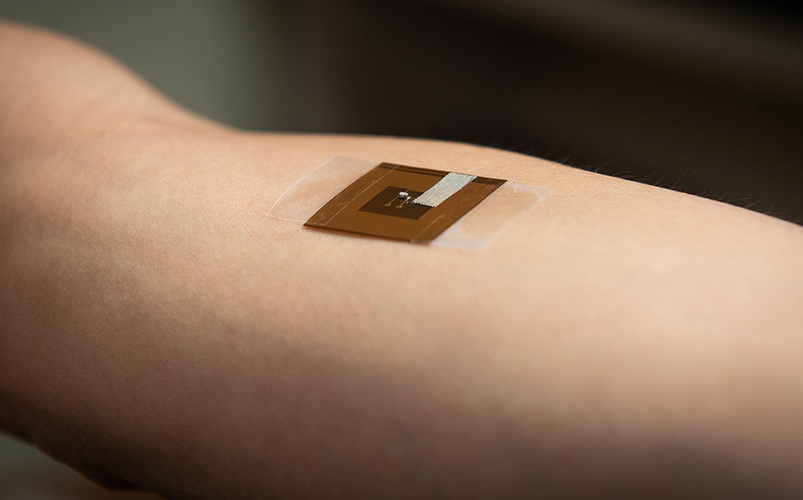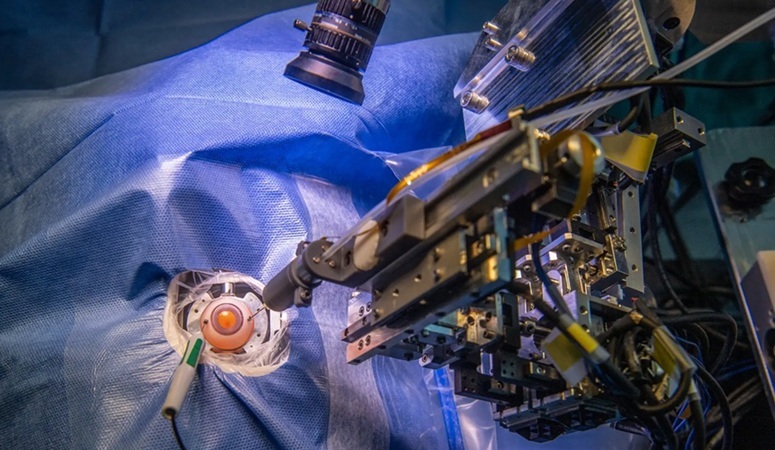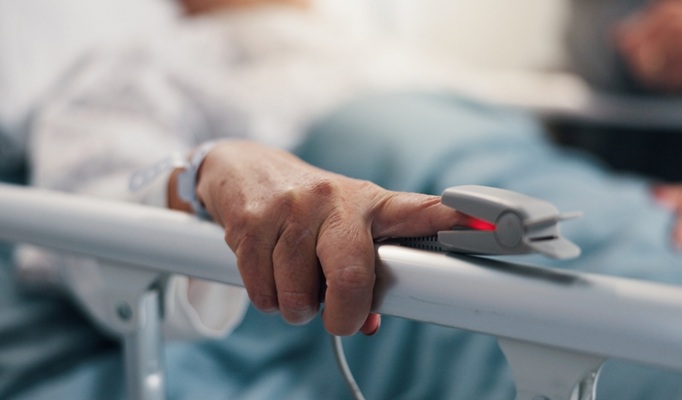Human-Machine Collaboration to Redefine Healthcare Market in 2018
|
By HospiMedica International staff writers Posted on 26 Dec 2017 |

Image: The gap between AI and humans is expected to be bridged in 2018 through a collaboration of humans and machines (Photo courtesy of Techora).
Human-machine collaboration will bridge the gap between artificial intelligence (AI) and humans in 2018, leaving aside the man versus machine competition. Non-traditional players such as Amazon, Apple, Google, and IBM will start having a tangible impact on the healthcare ecosystem. Competing outside their conventional arena, these organizations are pushing traditional healthcare companies to break their main business model and make healthcare more accessible, affordable, and consumer-centric.
These were some of the expert insights offered at Frost & Sullivan’s (Santa Clara, CA, USA) Growth Innovation Leadership (GIL) briefing titled, "Global Healthcare Market Key Predictions for 2018" held on December 13, 2017. Frost & Sullivan's experts have predicted another year of big disruptions, transformations and innovations as the healthcare industry continues to overhaul outmoded business models. Advances in areas ranging from cancer immunotherapy products to blood testing, as well as the convergence of cutting-edge technology such as AI and blockchain, will help shape the healthcare industry into a much-anticipated, value-based care paradigm.
2018 is expected to be a tipping point for the mainstream adoption of popular digital health tech/solutions (AI, mHealth/wearables, telehealth, Big Data analytics, and robotics) and the transition of noble technologies from research/proof-of-concept to actionable healthcare and clinical applications (blockchain and cancer immunotherapy products). Additionally, cloud-based PaaS/SaaS platforms will become integral to any healthcare data monetization model, and the transition of these technologies from ideation to actionable applications will drive growth opportunities across the world.
Furthermore, data monetization will unleash the power of patient data to achieve better outcomes across the healthcare value chain. The digital transformation of patient monitoring, coupled with data hubs using cell phone networks, will drive health revenue, thereby further reducing hospital inpatient census. There will be increasing awareness about the current inefficiencies in healthcare delivery, such as poor utilization of operating theaters. There will be high demand for optimization of resources, care coordination employing technology-based platforms, and products or services that improve the efficiency of healthcare delivery. Highly capitalized players such as Amazon, Alibaba, and Google will reshape whole segments of healthcare, revolutionizing and simplifying patient experiences and patient empowerment.
"Algorithms have outperformed humans in many cases. In 2018, the work of AI will begin to see fruition particularly in the diagnostic imaging market. Therefore, clinicians will start embracing this technology and use it more freely and easily," said Reenita Das, Partner, and Senior Vice President of Transformational Health at Frost & Sullivan.
"Blockchain technology will move from perceived hype to reality bandwagon demonstrating real value with initial commercial deployments across health insurance claim adjudication and revenue cycle management use cases. The debate will now move onto the topic of adoption, exploring [how] and [where] can blockchain technology be used in the healthcare space," added Kamaljit Behera, Industry Analyst, Visionary Healthcare at Frost & Sullivan.
Related Links:
Frost & Sullivan
These were some of the expert insights offered at Frost & Sullivan’s (Santa Clara, CA, USA) Growth Innovation Leadership (GIL) briefing titled, "Global Healthcare Market Key Predictions for 2018" held on December 13, 2017. Frost & Sullivan's experts have predicted another year of big disruptions, transformations and innovations as the healthcare industry continues to overhaul outmoded business models. Advances in areas ranging from cancer immunotherapy products to blood testing, as well as the convergence of cutting-edge technology such as AI and blockchain, will help shape the healthcare industry into a much-anticipated, value-based care paradigm.
2018 is expected to be a tipping point for the mainstream adoption of popular digital health tech/solutions (AI, mHealth/wearables, telehealth, Big Data analytics, and robotics) and the transition of noble technologies from research/proof-of-concept to actionable healthcare and clinical applications (blockchain and cancer immunotherapy products). Additionally, cloud-based PaaS/SaaS platforms will become integral to any healthcare data monetization model, and the transition of these technologies from ideation to actionable applications will drive growth opportunities across the world.
Furthermore, data monetization will unleash the power of patient data to achieve better outcomes across the healthcare value chain. The digital transformation of patient monitoring, coupled with data hubs using cell phone networks, will drive health revenue, thereby further reducing hospital inpatient census. There will be increasing awareness about the current inefficiencies in healthcare delivery, such as poor utilization of operating theaters. There will be high demand for optimization of resources, care coordination employing technology-based platforms, and products or services that improve the efficiency of healthcare delivery. Highly capitalized players such as Amazon, Alibaba, and Google will reshape whole segments of healthcare, revolutionizing and simplifying patient experiences and patient empowerment.
"Algorithms have outperformed humans in many cases. In 2018, the work of AI will begin to see fruition particularly in the diagnostic imaging market. Therefore, clinicians will start embracing this technology and use it more freely and easily," said Reenita Das, Partner, and Senior Vice President of Transformational Health at Frost & Sullivan.
"Blockchain technology will move from perceived hype to reality bandwagon demonstrating real value with initial commercial deployments across health insurance claim adjudication and revenue cycle management use cases. The debate will now move onto the topic of adoption, exploring [how] and [where] can blockchain technology be used in the healthcare space," added Kamaljit Behera, Industry Analyst, Visionary Healthcare at Frost & Sullivan.
Related Links:
Frost & Sullivan
Latest Business News
- Philips and Masimo Partner to Advance Patient Monitoring Measurement Technologies
- B. Braun Acquires Digital Microsurgery Company True Digital Surgery
- CMEF 2025 to Promote Holistic and High-Quality Development of Medical and Health Industry
- Bayer and Broad Institute Extend Research Collaboration to Develop New Cardiovascular Therapies
- Medtronic Partners with Corsano to Expand Acute Care & Monitoring Portfolio in Europe
- Expanded Collaboration to Transform OR Technology Through AI and Automation
- Becton Dickinson to Spin Out Biosciences and Diagnostic Solutions Business
- Boston Scientific Acquires Medical Device Company SoniVie
- 2026 World Hospital Congress to be Held in Seoul
- Teleflex to Acquire BIOTRONIK’s Vascular Intervention Business
- Philips and Mass General Brigham Collaborate on Improving Patient Care with Live AI-Powered Insights
- Arab Health 2025 Celebrates Landmark 50th Edition
- Boston Scientific Acquires Medical Device Company Intera Oncology
- MEDICA 2024 to Highlight Hot Topics of MedTech Industry
- Start-Ups To Once Again Play Starring Role at MEDICA 2024
- Boston Scientific to Acquire AFib Ablation Company Cortex
Channels
Critical Care
view channel
Ingestible Capsule Monitors Intestinal Inflammation
Acute mesenteric ischemia—a life-threatening condition caused by blocked blood flow to the intestines—remains difficult to diagnose early because its symptoms often mimic common digestive problems.... Read more
Wireless Implantable Sensor Enables Continuous Endoleak Monitoring
Endovascular aneurysm repair (EVAR) is a life-saving, minimally invasive treatment for abdominal aortic aneurysms—balloon-like bulges in the aorta that can rupture with fatal consequences.... Read more
Wearable Patch for Early Skin Cancer Detection to Reduce Unnecessary Biopsies
Skin cancer remains one of the most dangerous and common cancers worldwide, with early detection crucial for improving survival rates. Traditional diagnostic methods—visual inspections, imaging, and biopsies—can... Read moreSurgical Techniques
view channel
Robotic Assistant Delivers Ultra-Precision Injections with Rapid Setup Times
Age-related macular degeneration (AMD) is a leading cause of blindness worldwide, affecting nearly 200 million people, a figure expected to rise to 280 million by 2040. Current treatment involves doctors... Read more
Minimally Invasive Endoscopic Surgery Improves Severe Stroke Outcomes
Intracerebral hemorrhage, a type of stroke caused by bleeding deep within the brain, remains one of the most challenging neurological emergencies to treat. Accounting for about 15% of all strokes, it carries... Read morePatient Care
view channel
Revolutionary Automatic IV-Line Flushing Device to Enhance Infusion Care
More than 80% of in-hospital patients receive intravenous (IV) therapy. Every dose of IV medicine delivered in a small volume (<250 mL) infusion bag should be followed by subsequent flushing to ensure... Read more
VR Training Tool Combats Contamination of Portable Medical Equipment
Healthcare-associated infections (HAIs) impact one in every 31 patients, cause nearly 100,000 deaths each year, and cost USD 28.4 billion in direct medical expenses. Notably, up to 75% of these infections... Read more
Portable Biosensor Platform to Reduce Hospital-Acquired Infections
Approximately 4 million patients in the European Union acquire healthcare-associated infections (HAIs) or nosocomial infections each year, with around 37,000 deaths directly resulting from these infections,... Read moreFirst-Of-Its-Kind Portable Germicidal Light Technology Disinfects High-Touch Clinical Surfaces in Seconds
Reducing healthcare-acquired infections (HAIs) remains a pressing issue within global healthcare systems. In the United States alone, 1.7 million patients contract HAIs annually, leading to approximately... Read moreHealth IT
view channel















